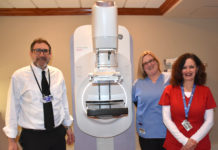Provided by Caring Times, a publication of Griswold Special Care
The new health care law clearly intends to keep older adults in their homes to receive the services they need to be as independent as possible. This is wonderful news for the millions of adults over 65 reaching retirement. Nine out of ten of these boomers want to remain at home rather than be forced to move to a nursing home.
The law, however, places the burden of care on family members, and has tremendous implications for the employers of these family caregivers. Demographic trends for the number of older adults indicate that a greater number of employees of all ages will assume the role of caregiver. Today, about 73% of family caregivers are employed in full or part-time jobs. According to recent MetLife studies, employed family caregivers were more likely to report higher stress and poorer health, higher medical costs, and lower productivity on the job.[1] Some studies estimate costs to employers of $17-$33 billion annually. In an effort to address issues of absenteeism, reduced hours of work, and workday interruptions, large and mid-size companies have developed work-life programs to support family caregivers to remain on the job. The programs typically offer education, eldercare referral services, flexible work schedules, subsidized or unpaid leave, incentives to participate in prevention programs, counseling, and guidance with Medicare, Medicaid, subsidized insurance programs. With the passage of the new health care law, there will be additional programs older adults and family caregivers can utilize. Caring Times will cover these programs as they become available.
1] Working Care-givers and Employer Healthcare Costs, Retrieved from MetLife Mature Market Institute at http://www.metlife.com/mmi/.
Griswold Special Care has offices in East Stroudsburg and other locations throughout the country.






















